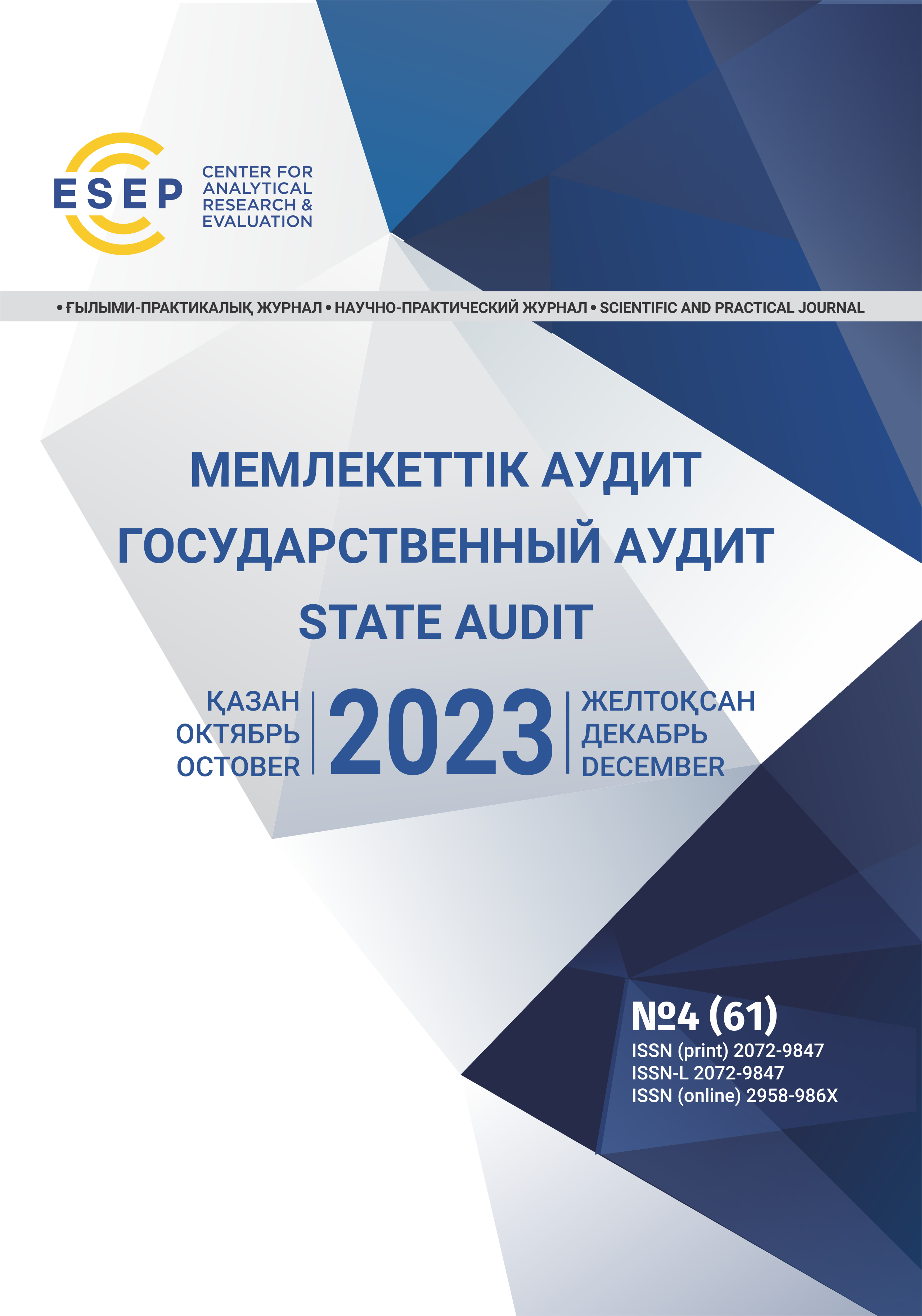Abstract
In conditions of economic crisis, government agencies often adopt a number of programs in order to stabilize the economic situation in the country. Such measures may include increased government spending, lower tax rates, or financial assistance to certain sectors of the economy. However, in the process of implementing such measures, the state should monitor the effective use of public resources. Therefore, the state audit is necessary to ensure transparency and efficiency of the work of state bodies, as well as to improve the financial results of the state as a whole. In the context of the economic crisis associated
with the post-pandemic period, geopolitical and geo-economic instability, the role of the state audit in the
implementation of anti-crisis measures becomes even more important.
An important aspect of this work is the identification of problems related to the evaluation of the effectiveness of the state audit and the limitations faced by auditors when conducting a state audit.
The purpose of this study is to study the role of the state audit in improving the efficiency of the use of funds in the framework of measures to overcome crisis phenomena on the basis of an improved methodology for evaluating effectiveness.
The methods of assessing the effectiveness of macroeconomic policy based on the experience of the
governments of the G7 countries have been studied. The methodology of the process of studying the components of the crisis impact of this policy, including the definition of success criteria, has been developed.
Recommendations for improving the anti-crisis strategy in the context of global disasters are proposed. The results of this study remain relevant in the context of the current economic crisis caused by geopolitical tensions.

